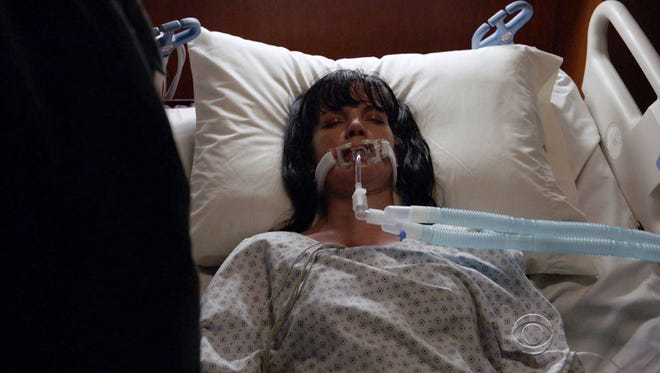
The city had a pulse, a rhythm of its own. It throbbed with the mundane and the miraculous, the quiet hum of everyday life punctuated by the occasional shriek of a siren – a sound most people barely registered, a background note in the symphony of urban existence. But for those like Abby, the siren was a call to arms, a declaration of purpose. She was a firefighter, a guardian of the burning edge, a quiet force in a world of roaring flames and collapsing structures. Until the day the rhythm fractured, and the siren became a lament for her.
It had been a routine call, if such a thing could ever exist in their world: a four-alarm blaze in an old textile mill, repurposed into cramped artist studios. The kind of fire that inhaled oxygen, exhaled black smoke, and defied containment with a malevolent will. Abby, small but wiry, had been part of the interior attack crew, pushing through the choking blackness, her helmet light a solitary beacon in the inferno. The heat was a living thing, clawing at their turnout gear, searing the air they breathed. They were pulling a family of huddled artists from a precarious loft when the building groaned, a deep, primal sound of timbers tearing, metal groaning. It wasn't the sharp crack of a joist, but a slow, agonizing surrender of the floor beneath them.
One moment, Abby was shouting instructions, her voice raw but steady. The next, the world fell away. Not a stumble, not a slip, but a sudden, terrifying emptiness. The scream of tortured timber, the roar of the fire, the panicked shouts of her crew – all coalesced into a single, deafening void as she plunged. Down, into the abyss of smoke and debris, into the heart of the conflagration. Then, just as suddenly, a sickening thud, a silence more terrifying than any noise, broken only by the crackle of the unyielding flames and the desperate, guttural cries of "Abby! ABBY!"
The rescue was immediate, brutal, and agonizingly slow. Her brothers and sisters in uniform tore through the collapsed section, their faces grimed with ash and fear. They found her, buried beneath a tangle of metal and charred wood, her helmet askew, her breathing shallow and ragged. The world outside the burning building had already begun to shift. The sirens, once a warning, now sang a different song – a desperate plea, a race against time.
Now, hours later, the city’s pulse feels muted, shrouded in a pervasive, sickening hush. The fluorescent hum of the hospital ICU waiting room is a stark contrast to the inferno’s roar, yet the heat of fear is far more intense here. Abby lies beyond the double doors, a silent figure in a stark white bed, connected to a symphony of beeping machines that are the only measure of her continued existence. A ventilator whispers a forced rhythm into her lungs. Monitors flash cryptic numbers. Every line, every tube, every electrode is a fragile thread tethering her to a life that teeters on the brink.
No one knows if she will survive.
The doctor, a man with tired eyes and a voice professionally devoid of emotion, had delivered the verdict: severe blunt force trauma, internal bleeding, a catastrophic head injury. He spoke in probabilities and percentages, clinical terms that offered no comfort, only a terrifying clarity. He spoke of "wait and see," a phrase that, in this sterile environment, felt less like hope and more like a cruel form of torture.
Her parents sit side by side, hands clasped, their faces etched with a grief so profound it feels ancient. Her father, a man whose hands built houses, now trembles uncontrollably. Her mother clutches a worn rosary, her lips moving in silent, desperate prayer. Her crew, the hardened men and women who had faced down countless horrors, are slumped in chairs, their uniforms still carrying the faint tang of smoke. Their usual banter is gone, replaced by a suffocating silence punctuated by the occasional sniffle or the shifting of weight. Each face is a study in controlled terror, eyes darting to the clock, then to the closed door of the ICU, as if willing it to open with good news.
They talk in hushed tones of "Abby," painting a mosaic of her life: her infectious, quiet laugh, her unwavering courage, the way she always volunteered for the toughest assignments, her uncanny ability to calm a frightened child in the midst of chaos. She was the one who remembered everyone's birthday, the one who brought fresh-baked cookies to the station, the one who, despite her quiet demeanor, possessed an iron will. She wasn’t just a number on a roster; she was the heart of their shift, a sister, a daughter, a friend. And now, she is a question mark.
The uncertainty hangs in the air, thick and suffocating. It seeps into every thought, every whispered word. Will she wake up? If she wakes, will she be the same Abby they know? Or will the fire have claimed more than just her physical being? The future is a fogged window, obscuring any clear view. There are no assurances, no promises, only the agonizing limbo of moments stretched into an eternity.
Abby, who ran towards the flames when others fled, now lies utterly still, her battle fought internally, against an enemy no one can see, no one can fight for her. She is in the line of duty, still, but this battlefield is silent, sterile, and terrifyingly unknown. And as the night deepens, the city’s pulse continues, oblivious to the fragile thread holding one of its bravest, most vital hearts. All anyone can do is wait, and pray, and hope that somewhere, in the silent depths of her unconscious mind, Abby is still fighting for survival.
